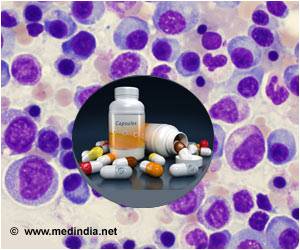Most multiple myeloma studies involve people of European descent, but the disease is more likely to affect African-Americans, says new study.

‘While European have mutations in the TP53 gene, African-Americans are susceptible to mutations in BCL7A, a different tumor suppressor gene.’





For example, in the study, multiple myeloma patients of European descent were six times more likely than their African peers to have mutations in the TP53 gene, a tumor suppressor that helps prevent cancer. African-Americans, on the other hand, experienced heightened mutations in BCL7A, a different tumor suppressor gene. "A cancer therapy that targets TP53 would not be as effective for African-Americans with multiple myeloma as it would be for a white population because doctors would be trying to fix the wrong mutated gene," said Manojlovic, assistant professor of research translational genomics at the Keck School of Medicine.
The study was published in PLOS Genetics. Researchers analyzed the genetic sequencing data of 718 multiple myeloma patients and found that African-Americans had increased mutations in the genes BCL7A, BRWD3 and AUTS2, while white people had more mutations in the genes TP53 and IRF4.
The study is the largest and most ethnically diverse genomics study of multiple myeloma to date, the researchers said.
The scientists genetically analyzed the ancestry for all patients and found that 127 patients were of African descent and 591 were of European descent.
Advertisement
Higher incidence rate and lower survival rates for African-Americans
Advertisement
African-Americans are two times more likely than white people to die from multiple myeloma, the study stated.
"In the past decade, new treatments for the disease have spurred a remarkable improvement in survival for myeloma patients, but those benefits have disproportionately increased survival rates for Caucasian patients," Carpten said. "African-American multiple myeloma patients have higher incidence rates and lower survival rates than their Caucasian peers despite this being a relatively easy-to-treat cancer.
"We in the cancer genomics community have a responsibility to ensure that our studies represent true population diversity so we can understand the role of ancestry and biology in health outcomes. The new candidate myeloma genes we identified in the African-American population may have been overlooked because of the lack of diversity in previous genomic efforts."
Source-Eurekalert















